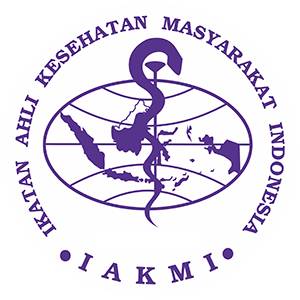SPIRITUAL EMOTIONAL FREEDOM TECHNIQUE (SEFT) TO REDUCE DEPRESSION IN HIV/AIDS SUFFERERS
DOI:
https://doi.org/10.30787/gemassika.v5i1.613Keywords:
spiritual counseling, SEFT, depression, HIV/AIDSAbstract
There were 90 AIDS sufferers in Surakarta City in 2015 and continued to increase in the following years in line with the increase in sexual behavior outside of marriage. Most of the children who are related to HIV AIDS sufferers are ostracized by their families and the surrounding community and even neglect by their biological families. This causes many problems such as caregivers who are irritable, uncomfortable, depressed, feeling bored, leaving the home, and so on. This community service aims to reduce depression in foster children and caregivers in shelters for AIDS sufferers. The methods used are 1). Program socialization and shared perceptions. 2). Pre test depression score. 3). Spiritual counseling and mentoring with a Spiritual Emotional Freedom Technique (SEFT) approach. 4) Post test for depression score. Twenty HIV / AIDS sufferers are willing to take part in this activity. The result was that the mean score of depression before mentoring was 21.05 (depression) and 17.1 (not depression) after mentoring. Thirteen participants managed to lower their depression score, six participants remained and one person increased. This assistance has an impact on participants to be more enthusiastic in living life.References
Astuti, R., Yosep, I., & Susanti, R. D. (1970). Pengaruh Intervensi SEFT (Spiritual Emotional Freedom Technique) terhadap Penurunan Tingkat Depresi Ibu Rumah Tangga dengan HIV. Jurnal Keperawatan Padjadjaran, 3(1), 44–56. https://doi.org/10.24198/jkp.v3i1.98
Diyanayati, K. (2006). Permasalahan Penyandang HIV/AIDS. In Jurnal Penelitian Dan Pengembangan Kesejahteraan Sosial (Vol. 11, Issue 03, pp. 67–73). https://media.neliti.com/media/publications/52952-ID-permasalahan-penyandang-hivaids.pdf
Etika, A. (2016). Spiritual Emotional Freedom Technique (SEFT) Intervention Decreases Elderly Depression. NurseLine Journal, 1(1), 1–10.
Hawari, D 2009. Global Effect HIV AIDS Dimensi Psikoreligi. Jakarta: BPFKUI.
Idris, B., Istianah, & Hadi, I. (2019). Penangnan depresi melalui pendekatan motivational interviewing (Y. Kusnita (ed.)).
Indah, I. (2018). InfoDatin-HIV-AIDS-2018.pdf. PUSDATIN KEMKES RI.
Kusuma, H. (2011). Hubungan Antara Depresi dan Dukungan Keluarga Dengan Kualitas Hidup Pasien HIV/AIDS yang Menjalani Perawatan di RSUP Cipto Mangunkusumo Jakarta. Universitas Indonesia, 20,21,76-79,111-114,135-139. www.lib.ac.id
Moon, J. R., Huh, J., Song, J., Kang, I. S., Park, S. W., Chang, S. A., Yang, J. H., & Jun, T. G. (2017). The Center for Epidemiologic Studies Depression Scale is an adequate screening instrument for depression and anxiety disorder in adults with congential heart disease. Health and Quality of Life Outcomes, 15(1), 1–7. https://doi.org/10.1186/s12955-017-0747-0
Nurlatifah, A. I. (2016). No Title Spiritual Emotional Freedom Technique (SEFT) sebagai Terapi dalam Konseling. Madaniyah, 2(XI), 317–327. https://journal.stitpemalang.ac.id/index.php/madaniyah/article/view/9
Nursalam, Ninuk, Bakar, A., Purwaningsih, & Candra. (2014). Respons Bio-Psiko-Sosio-Spiritual Pada Keluarga Tenaga Kerja Indonesia Yang Terinfeksi Hiv. Jurnal Ners, 9(2), 209–216.
Purwanti, A., & Wijayanti, T. (2018). MANUSIA SEBAGAI MAKHLUK YANG HOLISTIK. Adjie Media Nusantara. http://adjiemedianusantara.co.id/manusia-sebagai-makhluk-yang-holistik/
Rajin, M. (2015). Terapi Spiritual Emotional Freedom Tehnique (SEFT) Untuk Meningkatkan Kualitas Tidur Pasien Pasca Operasi di Rumah sakit. Jurnal Lembaga Penelitian Universitas Pesantren Tinggi Darul Ulum, 1(2), 1–5.
Schnaas, F. J. (2003). Handbook of Depression. In The Journal of Clinical Psychiatry (Vol. 64, Issue 12). https://doi.org/10.4088/jcp.v64n1218c
Setiadhie H. (2019, December 10). Jateng 5 Besar Provinsi Kasus HIV Tertinggi di Indonesia. https://humas.jatengprov.go.id/detail_berita_gubernur?id=3722
Srihanto, W. (2020). Di Solo, Kasus HIV/AIDS Tertinggi Kedua se-Jawa Tengah. https://kumparan.com/bengawannews/di-solo-kasus-hiv-aids-tertinggi-kedua-se-jawa-tengah-1tfssCuFN4B/full
Wahyu, S., Taufik, T., & Ilyas, A. (2012). Konsep Diri dan Masalah yang Dialami Orang Terinfeksi HIV/Aids. Konselor, 1(2), 1–12. https://doi.org/10.24036/0201212695-0-00
Yusniarita, Y., Patroni, R., & Ningsih, R. (2018). Pengaruh Dukungan Spiritual Terhadap Kualitas Hidup Penderita Kanker Payudara Pasca Kemoterapi. Jurnal Media Kesehatan, 9(2), 144–151. https://doi.org/10.33088/jmk.v9i2.306
Yusuf, A. (2016). Kebutuhan spiritual : Konsep dan Aplikasi Dalam Asuhan Keperwatan. Jakarta: Mitra Wacana Media, 326.
Zainudin AF. (2012). SEFT (Spiritual Emotional Freedom Technique). Afzan.












